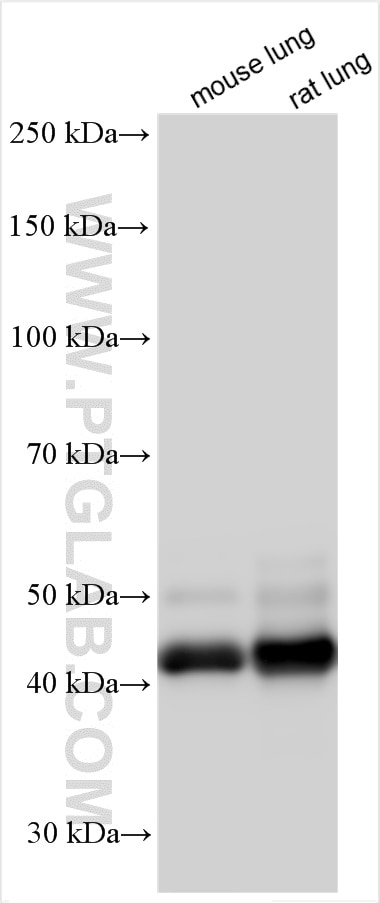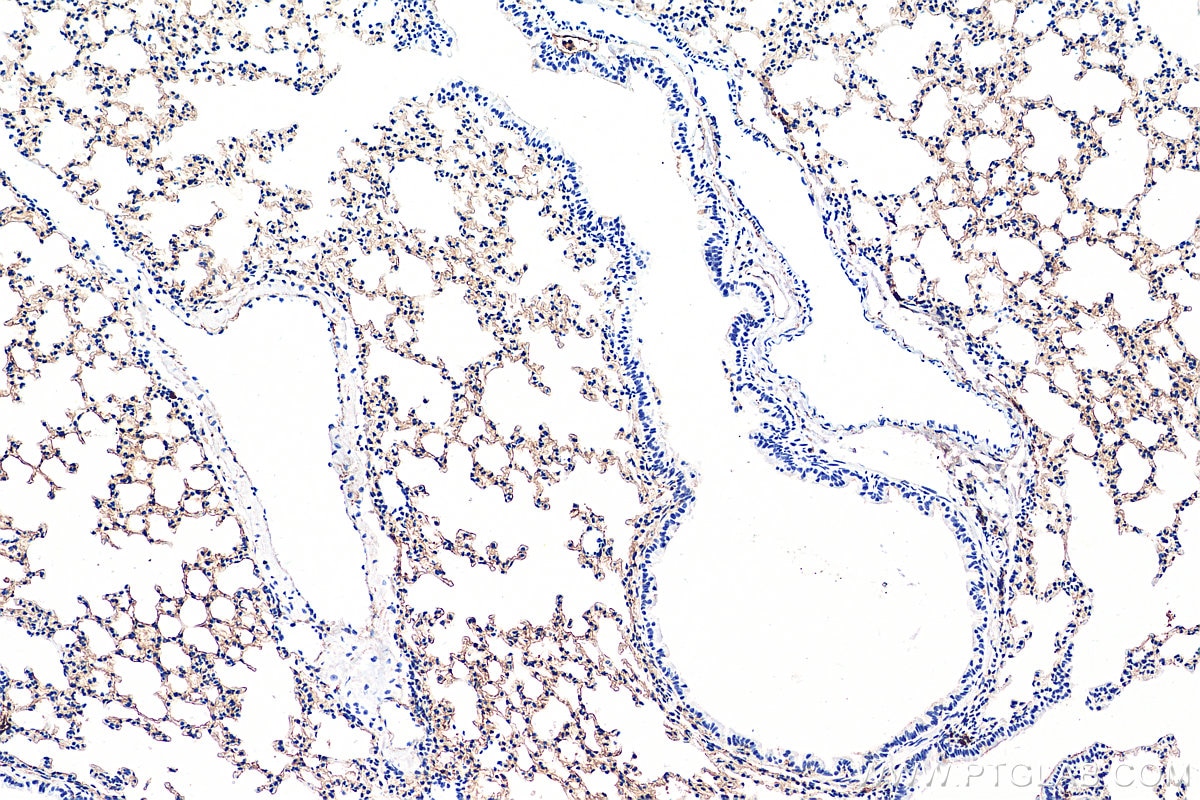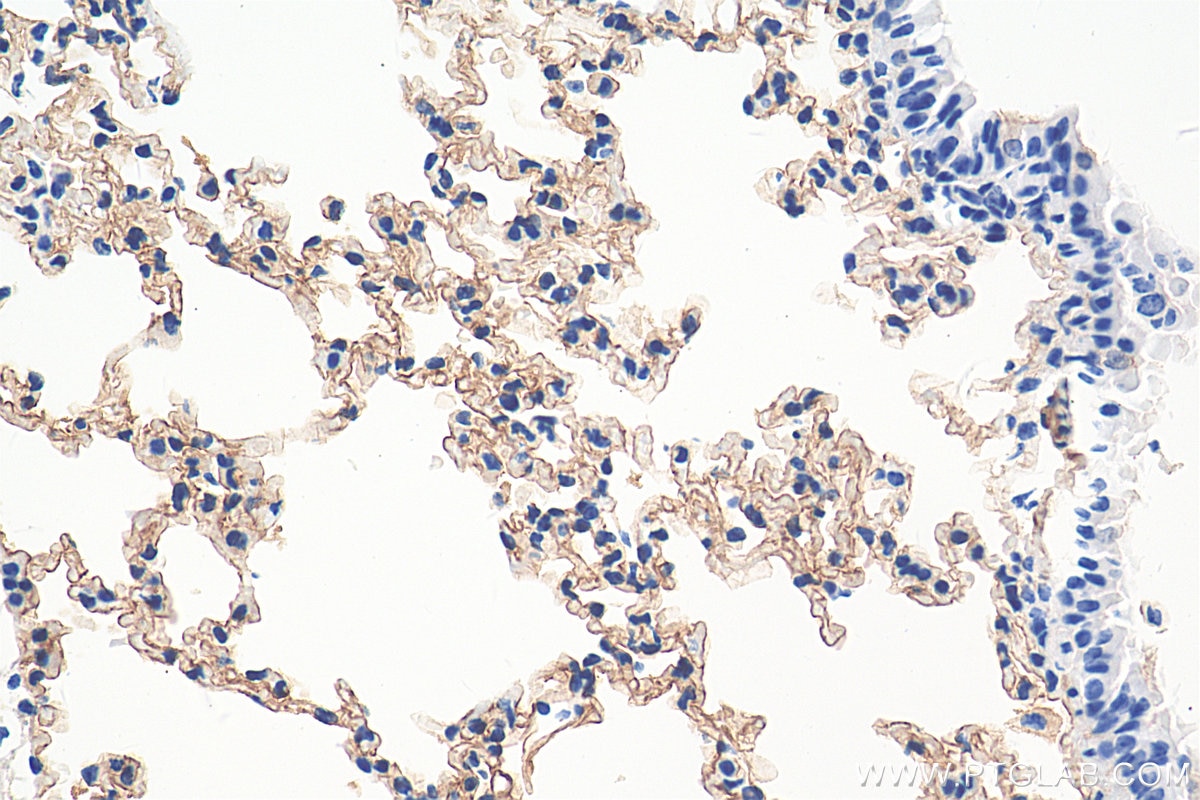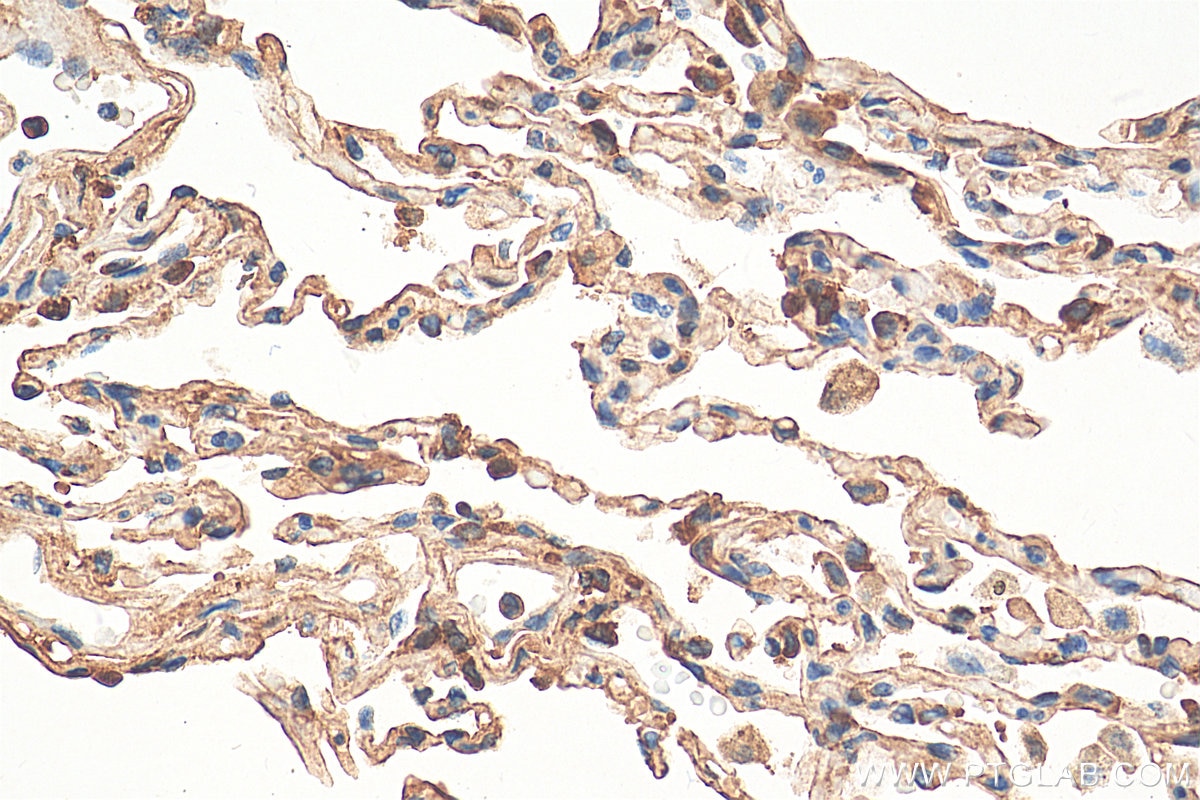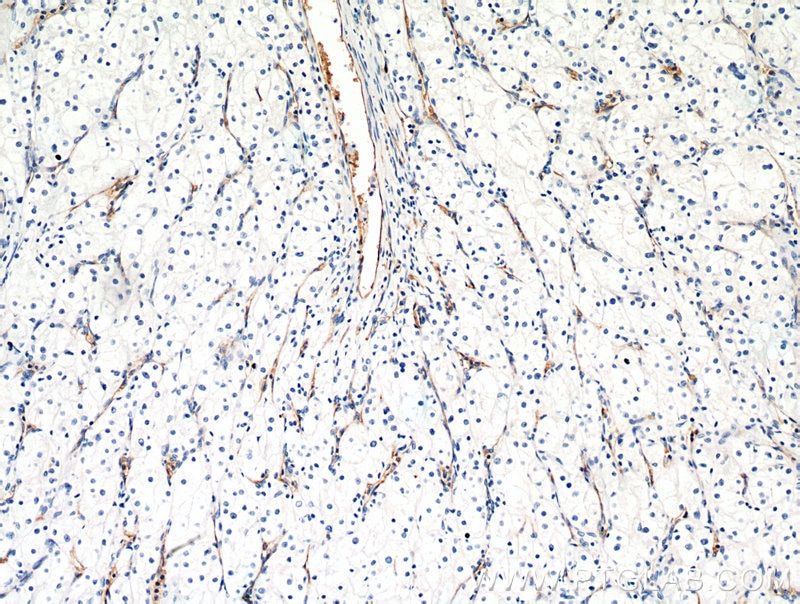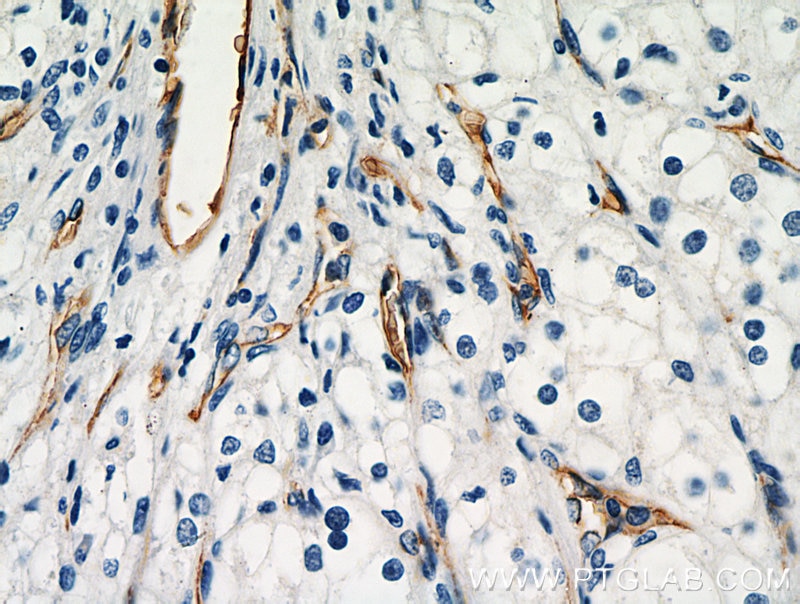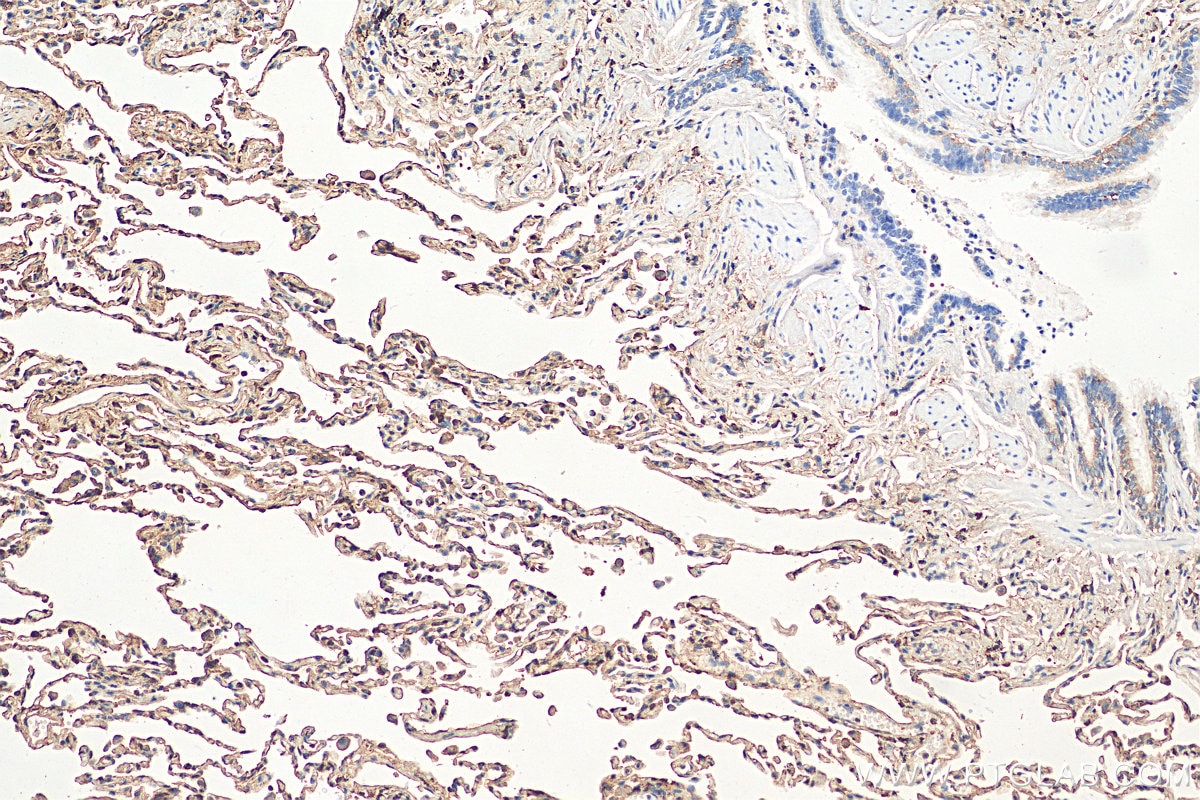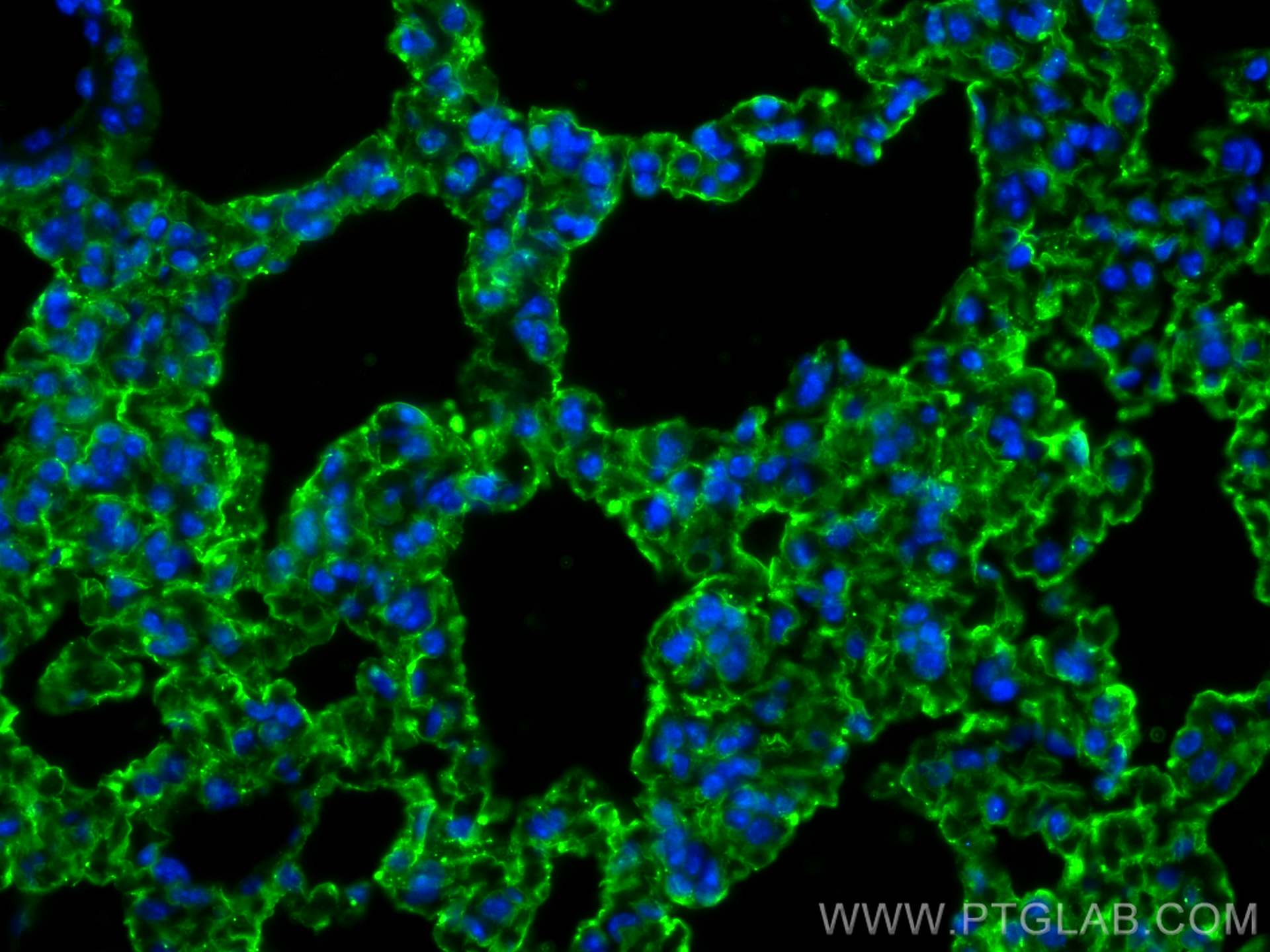- Featured Product
- KD/KO Validated
AGER/RAGE Polyklonaler Antikörper
AGER/RAGE Polyklonal Antikörper für WB, IHC, IF-P, ELISA
Wirt / Isotyp
Kaninchen / IgG
Getestete Reaktivität
human, Maus, Ratte
Anwendung
WB, IHC, IF-P, ELISA
Konjugation
Unkonjugiert
Kat-Nr. : 16346-1-AP
Synonyme
Geprüfte Anwendungen
| Erfolgreiche Detektion in WB | Mauslungengewebe, Rattenlungengewebe |
| Erfolgreiche Detektion in IHC | Mauslungengewebe, humanes Lungengewebe, humanes Nierenzellkarzinomgewebe Hinweis: Antigendemaskierung mit TE-Puffer pH 9,0 empfohlen. (*) Wahlweise kann die Antigendemaskierung auch mit Citratpuffer pH 6,0 erfolgen. |
| Erfolgreiche Detektion in IF-P | Mauslungengewebe |
Empfohlene Verdünnung
| Anwendung | Verdünnung |
|---|---|
| Western Blot (WB) | WB : 1:2000-1:16000 |
| Immunhistochemie (IHC) | IHC : 1:2000-1:8000 |
| Immunfluoreszenz (IF)-P | IF-P : 1:50-1:500 |
| It is recommended that this reagent should be titrated in each testing system to obtain optimal results. | |
| Sample-dependent, check data in validation data gallery | |
Veröffentlichte Anwendungen
| KD/KO | See 6 publications below |
| WB | See 38 publications below |
| IHC | See 10 publications below |
| IF | See 11 publications below |
Produktinformation
16346-1-AP bindet in WB, IHC, IF-P, ELISA AGER/RAGE und zeigt Reaktivität mit human, Maus, Ratten
| Getestete Reaktivität | human, Maus, Ratte |
| In Publikationen genannte Reaktivität | human, Maus, Ratte |
| Wirt / Isotyp | Kaninchen / IgG |
| Klonalität | Polyklonal |
| Typ | Antikörper |
| Immunogen | AGER/RAGE fusion protein Ag9540 |
| Vollständiger Name | advanced glycosylation end product-specific receptor |
| Berechnetes Molekulargewicht | 404 aa, 43 kDa |
| Beobachtetes Molekulargewicht | 43 kDa |
| GenBank-Zugangsnummer | BC020669 |
| Gene symbol | AGER |
| Gene ID (NCBI) | 177 |
| Konjugation | Unkonjugiert |
| Form | Liquid |
| Reinigungsmethode | Antigen-Affinitätsreinigung |
| Lagerungspuffer | PBS with 0.02% sodium azide and 50% glycerol |
| Lagerungsbedingungen | Bei -20°C lagern. Nach dem Versand ein Jahr lang stabil Aliquotieren ist bei -20oC Lagerung nicht notwendig. 20ul Größen enthalten 0,1% BSA. |
Hintergrundinformationen
Advanced glycosylation end product-specific receptor (AGER, also known as RAGE) is a member of the immunoglobulin superfamily of cell surface receptors, which interacts with distinct families of ligands, mediating diverse functions in a broad array of cell types including cellular migration, proliferation, survival and apoptosis (PMID: 12645002; 17425919). It senses endogenous stress signals with a broad ligand repertoire including advanced glycation end products, S100 proteins, high-mobility group box 1 protein/HMGB1, amyloid beta/APP oligomers, nucleic acids, phospholipids and glycosaminoglycans (PMID: 19910580; 28627626). It interacts with distinct molecules implicated in homeostasis, development, inflammation, and certain diseases such as diabetes and Alzheimer's disease (PMID: 26253613; 31079281).
Protokolle
| PRODUKTSPEZIFISCHE PROTOKOLLE | |
|---|---|
| WB protocol for AGER/RAGE antibody 16346-1-AP | Protokoll herunterladen |
| IHC protocol for AGER/RAGE antibody 16346-1-AP | Protokoll herunterladenl |
| IF protocol for AGER/RAGE antibody 16346-1-AP | Protokoll herunterladen |
| STANDARD-PROTOKOLLE | |
|---|---|
| Klicken Sie hier, um unsere Standardprotokolle anzuzeigen |
Publikationen
| Species | Application | Title |
|---|---|---|
EMBO J A novel human fetal lung-derived alveolar organoid model reveals mechanisms of surfactant protein C maturation relevant to interstitial lung disease | ||
Oxid Med Cell Longev l-Theanine Ameliorates d-Galactose-Induced Brain Damage in Rats via Inhibiting AGE Formation and Regulating Sirtuin1 and BDNF Signaling Pathways. | ||
J Neuroinflammation Inhibiting HMGB1-RAGE axis prevents pro-inflammatory macrophages/microglia polarization and affords neuroprotection after spinal cord injury. | ||
J Neuroinflammation Celastrol exerts a neuroprotective effect by directly binding to HMGB1 protein in cerebral ischemia-reperfusion. | ||
Mol Med AGEs promote atherosclerosis by increasing LDL transcytosis across endothelial cells via RAGE/NF-κB/Caveolin-1 pathway
| ||
Front Pharmacol Protective effect of heat-processed Gynostemma pentaphyllum on high fat diet-induced glucose metabolic disorders mice |
